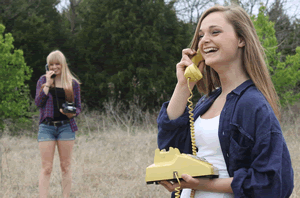 Talking clearly and accurately with our children is essential. Showing our children that we are not embarrassed or ashamed to talk about bodies, body ownership, respectful relationships, feelings and safety helps children learn.
Talking clearly and accurately with our children is essential. Showing our children that we are not embarrassed or ashamed to talk about bodies, body ownership, respectful relationships, feelings and safety helps children learn.
Age and developmentally appropriate education involves teaching children correct names and functions of their body parts, about being private, and teaching them to care for, respect, and protect their bodies. It means talking about healthy touch. It does not involve talking with them about “monsters”, “bad people”, “down there” and “those bits”.
Children and young people are more likely to be harmed by an adult or child that is known to them than a stranger. ‘Stranger Danger’ education is surely a thing of the past. The Royal Commission into Institutional Responses to Child Sexual Abuse recommendations have also highlighted the need for us to also talk about children’s sexual behaviours that are harmful and abusive. It is estimated that thirty to fifty percent of sexual abuse relates to child on child sexual behaviours.
We have to be clear, accurate, positive and protective.
Personal safety education plays an important role in preventing abuse.
Day for Daniel is Australia’s largest Child Safety Awareness Day. It gives parents, carers and teachers the perfect opportunity to talk about personal safety with children and young people. This year, Australia’s Biggest Child Safety Lesson will be broadcast on 26 October. The lesson targets children aged 3 to 8 years of age using an interactive, play based approach. The lesson is mapped to the National Curriculum (ACARA) and endorsed in each state and territory by the relevant education department. Last year on Day for Daniel 100 000 students across the nation watched the lesson together in their classrooms.
Please visit www.danielmorcombe.com.au to see more tips for personal safety talks and to register for Day for Daniel and Australia’s Biggest Child Safety Lesson.
It’s our job to remind children that it is always ok to talk, no matter what. Talk Early, Talk Often. Keep Talking.


